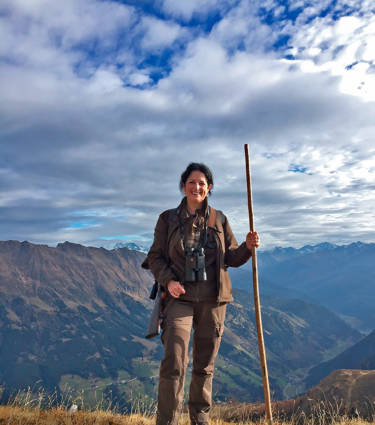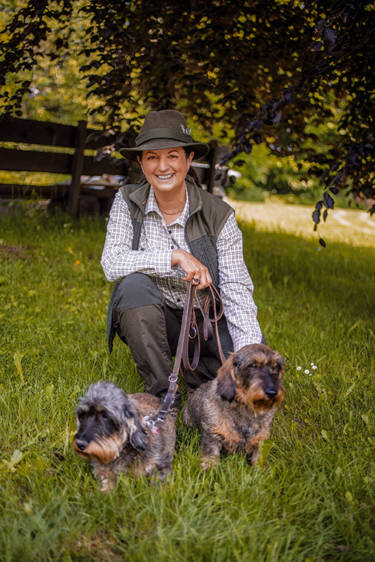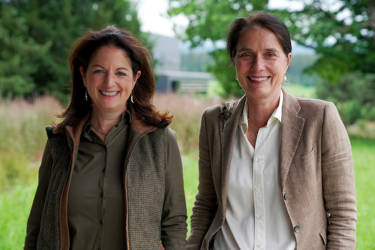Because women hunt differently?
I don’t actually think that is the case. Fundamentally, people of all genders hunt in the same way. And that is a good thing because hunting is ultimately a craft that every hunter should master flawlessly. In addition, the challenges facing the entire hunting community are the same across the board, and this determines our duties as an advocacy group. I believe the gender of the person at the head of this association is irrelevant. It is more important that we listen to our members to find out their concerns and figure out ways for the association to help them.
What would you like to achieve?
I’d rather achieve more than less (laughs). At the top of my agenda is ensuring hunting is kept as it is, with everyone having the right to ownership and right of use rather than hunting being a forestry or vermin control service. I want to stress that every shot must be justified, but for me, legitimate passion is the only authorisation hunters need. Two major fields of action can be derived from this. Firstly, we need to continue to improve our public image. Secondly, we need to make our voice heard. The general public is not as critical of the hunting community as it may sometimes seem, given some of the headlines and online hate. But unfortunately, the people who oppose hunting are loud and often very subjective in their actions. It is therefore also very important that we provide in-depth explanations of what we do, why, and how all forest users can benefit from it.
Because hunters are also conservationists?
Precisely. We need to improve our communication in this regard and explain what hunters do for flora and fauna. For example, as part of a representative survey in spring, the German Hunting Association ascertained that every hunter spends an average of just under 20 percent of their annual hunting budget on species conservation and biotope maintenance. And they spend 16 hours a month out on the grounds where they shoot on activities such as saving wildlife from being killed by mowers in spring or protecting trees from overbrowsing. As such, the hours they spend volunteering to help nature soon add up.
And does that include the executive committee’s work?
Yes, correct. My colleagues and I do this work exclusively on a voluntary basis. This includes meetings we attend as representatives, meetings with local hunting groups, the executive committee’s meetings, right through to the State Hunting Day, to name just a few of our commitments. I find it exciting to meet so many different people who are united by the same passion. And, of course, swapping hunting stories is always part of it. Which brings me to the second field of action.
Which is?
Achieving more unity between all hunters. Although there are only around 400,000 hunters in Germany, this group is anything but on the same page. There are people who hunt for meat, people who hunt for trophies, traditional and modern hunters, technophobes and technophiles, people who hunt abroad and people who only hunt locally. As hunters are such a small group of the population, it is all the more important that we speak using one voice so that our interests, for example regarding legislation, are taken into consideration. Far too often, we only respond to new regulations instead of playing a proactive role from the start and representing our legitimate interests.




